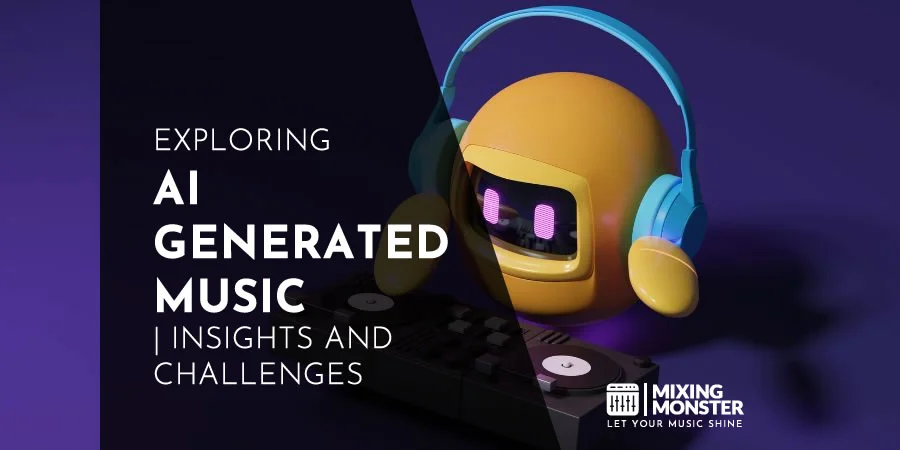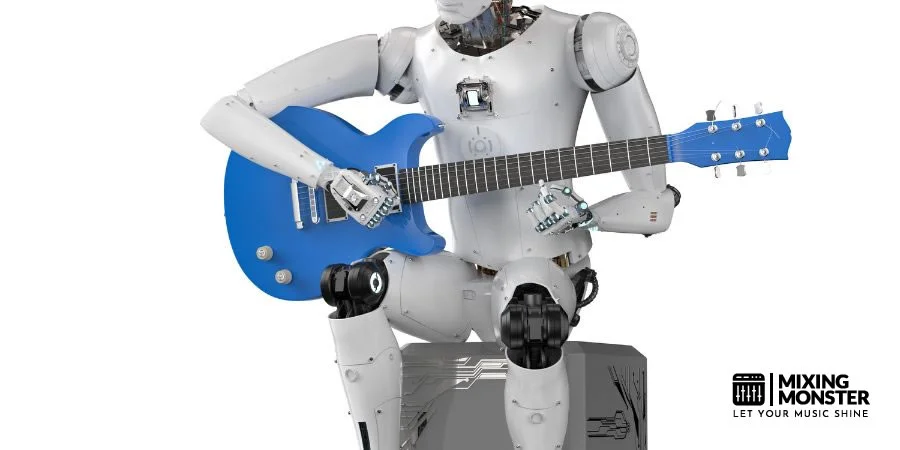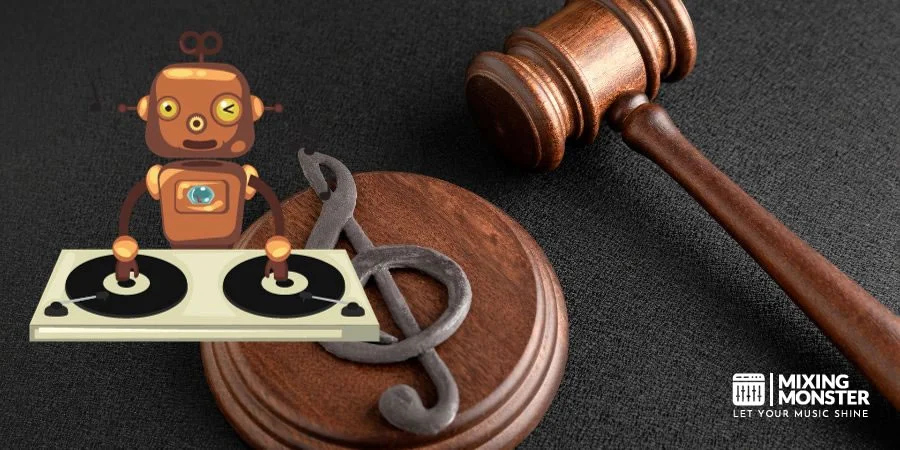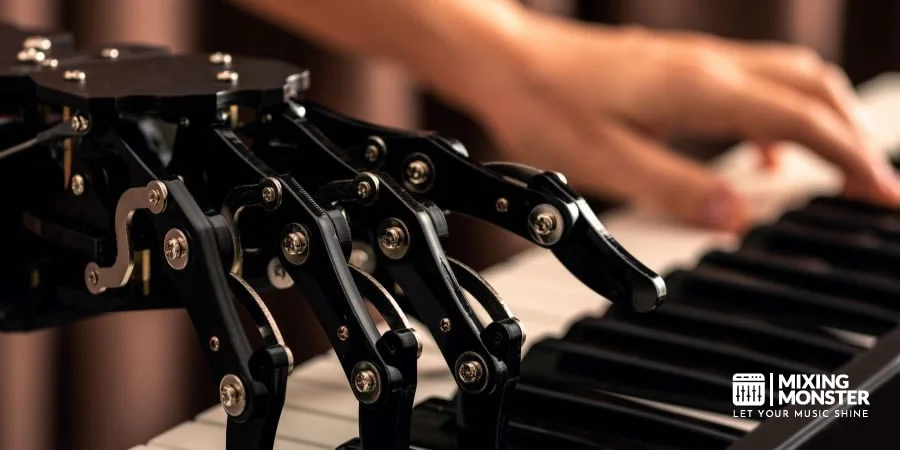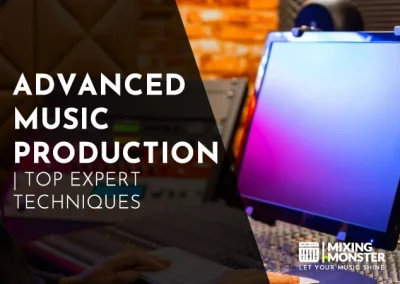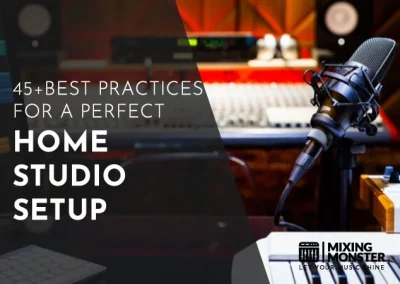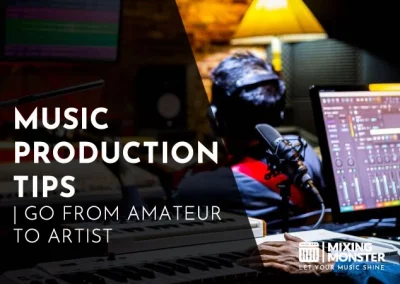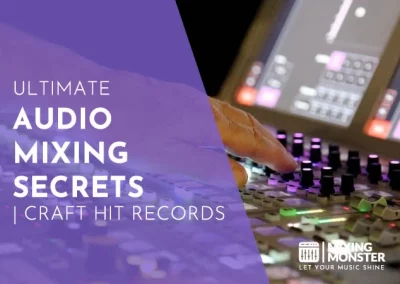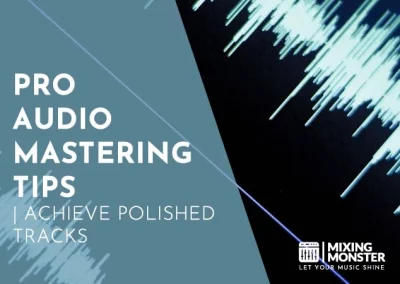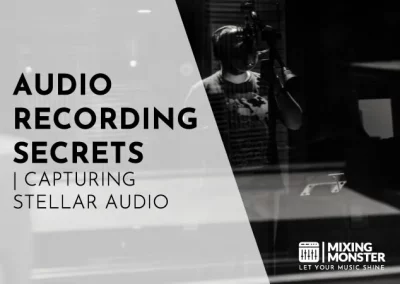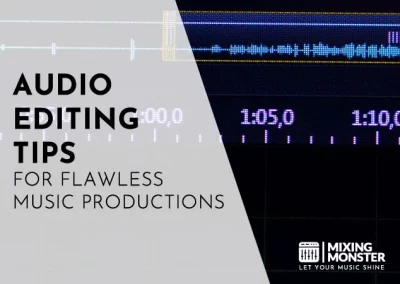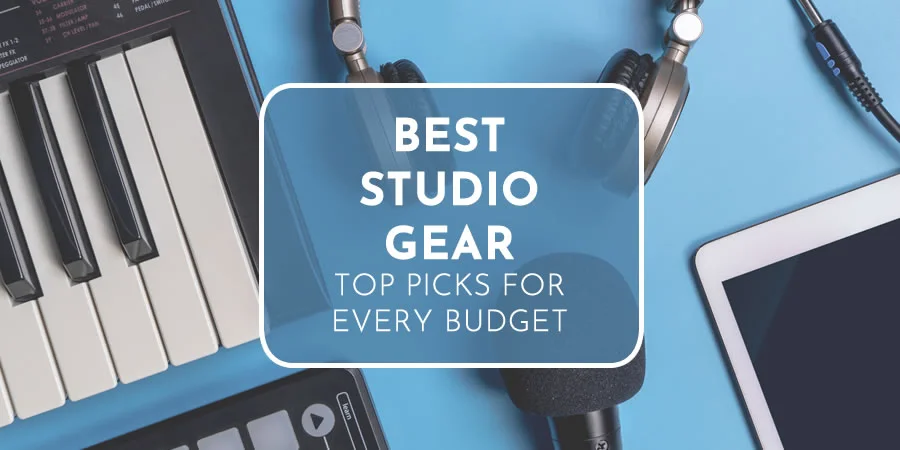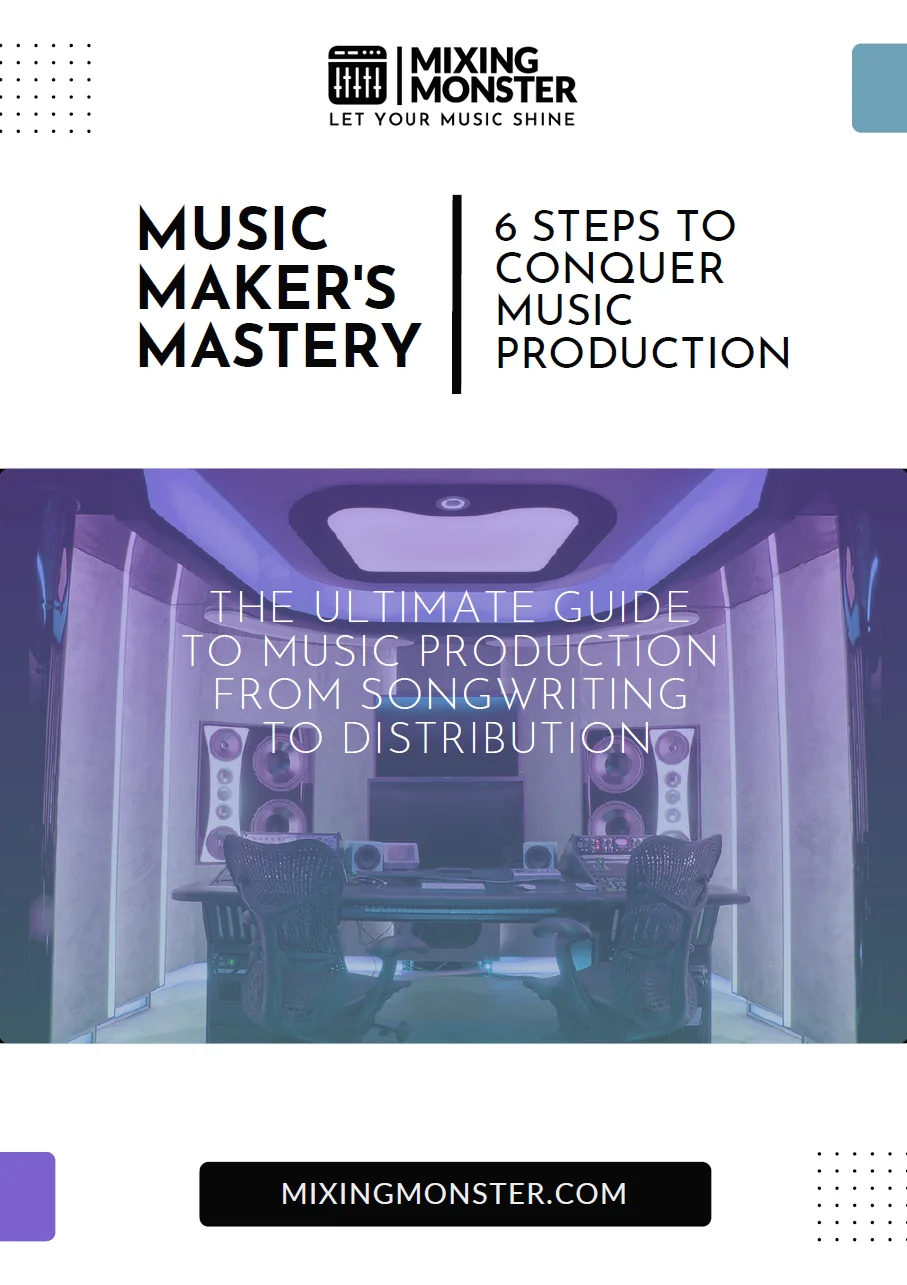Home > Blog > Music > Music Technology
Affiliate Disclaimer: We may earn a commission if you purchase through our links
AI-generated music is rapidly transforming the soundscape of our world. From intricate algorithms composing symphonies to AI aiding songwriters, this innovative technology is reshaping our musical experiences. How does AI craft these melodies, and what does it mean for the future of music? This exciting evolution raises questions about creativity, royalties, and the very nature of art.
AI-generated music employs algorithms to mimic human composition. By analyzing patterns in vast music datasets, these systems, using machine learning, create unique pieces, reshaping the understanding of creativity and authorship in music.
Are you curious about what lies ahead in this AI-driven musical revolution? Read on to discover how AI creates new melodies and challenges our traditional music production and creativity notions.
Table Of Contents
1. Robot Rock: Introducing AI In Music
2. The Mechanics Of Melody: How AI Composes Music
3. Royalty And Rights: Legalities In AI-Generated Music
4. Creative Collaborations: AI In Songwriting And Composition
5. Challenges And Critiques: The Debate Over AI-Generated Music
6. Future Harmonies: The Potential Of AI-Generated Music
7. Summarizing The AI-Generated Music Phenomenon
8. FAQ

1. Robot Rock: Introducing AI In Music
The Concept Of AI-Generated Music
In the ever-evolving world of music production, AI-generated music stands at the forefront of technological innovation.
This concept is not just about computers creating music; it’s about harnessing artificial intelligence to revolutionize how we create, experience, and interact with music.
AI music generation uses algorithms to learn from various musical compositions, understand patterns and styles, and generate new music that resonates with these learnings. It’s a blend of science and art, where technology meets creativity.
Evolution Of AI Music Generation Technologies
The journey of AI in music generation is a tale of rapid advancement and endless possibilities. The evolution has been revolutionary, from the early days of simple algorithmic compositions to today’s sophisticated AI systems.
Each step in this evolution has seen improvements in the complexity and quality of music AI can produce, bringing it closer to the nuanced creations of human musicians.
Key Technologies Behind AI-Generated Music
At the heart of AI-generated music are technologies that are as fascinating as the music they produce. Machine learning, intense technical learning, plays a pivotal role.
These systems analyze and learn from existing music, drawing on various genres and styles to create something new and unique. Other technologies include neural networks, which mimic the human brain’s processing, and algorithms focusing on pattern recognition and predictive modeling.
Together, these technologies empower AI to compose innovative and emotionally resonant music.
2. The Mechanics Of Melody: How AI Composes Music
Understanding Machine Learning In AI-Generated Music
The core of AI-generated music lies in machine learning, a subset of AI that enables computers to learn from data and improve over time.
In the context of music, machine learning algorithms are fed large datasets of various musical pieces. These algorithms analyze the data to discern patterns, rhythms, harmonies, and structures that define different genres and styles.
This process is about replicating existing music and understanding what makes a piece resonate emotionally with listeners.
Data Analysis And Pattern Recognition In AI-Generated Music
Pattern recognition is critical in AI music generation. AI systems examine many musical elements – from chord progressions to tempo variations.
They identify commonalities and trends within these elements, which guides the creation of new compositions. This analysis is not limited to simple structures; AI delves into complex musical arrangements, learning from the intricacies of varied musical forms and historical changes in music styles.
From Data To Melody: The AI Music Composition Process
Turning data analysis into melody is where AI’s creativity shines. Once the AI system understands musical patterns and structures, it begins the composition process. This involves generating sequences of notes, rhythms, and harmonies that align with the learned patterns.
However, it’s not an assembly of elements; the AI often experiments, combining different styles and techniques to create unique compositions.
The result is a blend of learned musical knowledge and innovative experimentation, leading to new musical pieces that are both familiar and refreshingly original.
But are these musical pieces really that original?
3. Royalty And Rights: Legalities In AI-Generated Music
AI-Generated Music Copyrights
One of the most complex aspects of AI-generated music is its implications for copyrights. Traditionally, music copyrights protect the creative works of human artists, but the entry of AI challenges this notion.
Questions arise about who owns the music: the creator of the AI, the user who inputs the parameters, or the AI itself. These questions become even more pertinent as AI-generated compositions become more prevalent and commercially viable.
There have already been lawsuits regarding copyrights in AI-generated music, and the future will see how mankind handles the copyrights.
Royalty Distribution And Ownership In AI-Generated Music
Royalties are vital to the music industry, providing artists and rights holders income. However, when music is generated by AI, determining the distribution of royalties is complicated.
This new field’s lack of clear legal precedents and guidelines creates uncertainty. Establishing fair and equitable systems for royalty distribution is essential to ensure that all human or digital contributors are appropriately compensated.
Future Legal Implications Of AI-Generated Music
The legal landscape for AI-generated music is still evolving. As AI continues to play a more significant role in the music industry, there will be a need for laws and regulations that address the unique challenges it presents.
This includes redefining copyright laws to accommodate AI’s role in music creation and establishing clear guidelines for royalties and ownership.
The decisions made today will shape the future of AI in music, balancing innovation with the protection of artists’ rights.
4. Creative Collaborations: AI In Songwriting And Composition
AI As A Tool For Musicians
AI in songwriting and composition is emerging as a powerful tool for musicians. It’s not about replacing human creativity but enhancing it. Musicians can use AI to generate ideas, experiment with different styles, and even overcome creative blocks.
AI can provide a starting point for a composition, suggest chord progressions, or offer variations on a musical theme, allowing artists to explore new creative avenues.
Ways Musicians Can Utilize AI in Music Production:
- Idea Generation:
Use AI to create various musical ideas and motifs for inspiration. - Style Simulation:
Experiment with different musical styles and genres through AI simulations. - Harmony And Melody Creation:
AI suggests harmonies and melodies based on specific inputs. - Lyrics Writing:
Employ AI to generate lyrics or find rhyming words and phrases. - Music Arrangement:
Utilize AI to suggest arrangements and instrumentations. - Mixing and Mastering Assistance:
Take advantage of AI’s ability to analyze and suggest improvements in mixing and mastering. - Real-Time Performance Enhancement:
Use AI in live performances for real-time music improvisation and enhancements. - Personalized Music Education:
Employ AI for customized learning experiences in music theory and composition.
AI In Songwriting And Composition
Integrating AI into songwriting and composition marks a new era in music creation. Some artists use AI to create complete songs, while others use it for specific elements like melodies or harmonies.
This collaboration between AI and human musicians produces unique and innovative music that might not have been possible otherwise.
It also opens up opportunities for artists who may not have traditional music training, democratizing the music production process.
The Impact Of AI On The Music Production Process
AI’s role in music production extends beyond composition. It can assist in mixing and mastering tracks, suggesting adjustments to improve sound quality.
AI algorithms can analyze a song and offer recommendations on balancing levels, equalization, and even identifying areas that might need reworking.
This speeds up the production process and helps musicians achieve a polished and professional sound.

5. Challenges And Critiques: The Debate Over AI-Generated Music
Ethical Considerations Of AI-Generated Music
The rise of AI in music has sparked ethical debates. One key concern is the potential for AI to replicate existing artists’ styles too closely, leading to issues of artistic identity and originality.
Additionally, there’s the question of whether AI-generated compositions can be considered ‘art’ since they lack human emotional input and intent.
These ethical considerations are vital in understanding the broader impact of AI on the music industry.
Quality And Originality Concerns Of AI-Generated Music
While AI has made significant strides in music generation, concerns about the quality and originality of its output remain. Critics argue that AI-generated music lacks the emotional depth and nuance that human composers bring.
There’s also a risk of homogenization, where AI algorithms produce music that follows popular trends, potentially stifling musical diversity and innovation.
Balancing AI And Human Creativity In Music Production
A significant challenge in AI-generated music is finding the right balance between technological innovation and human creativity. While AI can generate music, the human touch in storytelling, emotional expression, and artistic interpretation is irreplaceable.
The future of music lies in a harmonious blend of AI capabilities and human artistry, where each complements the other to create richer, more diverse musical landscapes.
6. Future Harmonies: The Potential Of AI-Generated Music
Emerging Trends In AI-Generated Music
AI-generated music is poised to see significant growth and innovation as technology advances. Emerging trends include more sophisticated AI algorithms capable of producing increasingly complex and varied music.
There’s also a growing interest in interactive music experiences, where AI-generated music changes in real time based on listener reactions or environmental factors. These advancements are set to expand the boundaries of music creation and consumption.
AI-Generated Music In Education And Therapy
Beyond entertainment, AI-generated music holds promise in education and therapy. AI can teach music composition and theory in more interactive and personalized ways in educational settings.
In treatment, AI-composed music can be tailored to individual emotional and therapeutic needs, offering new avenues in music therapy.
These applications demonstrate AI’s versatility and potential impact beyond traditional industry boundaries.
Predictions For AI In The Music Industry
Looking ahead, AI is likely to become an integral part of the music industry. It could lead to new genres and styles born from AI-human collaborations, change how music is produced and distributed, and influence how we discover and interact with music.
As AI technology continues to evolve, its potential to transform the music landscape remains vast and largely untapped.
Comparative Analysis Of AI And Human Music Composition
| Aspect | AI-Generated Music | Human-Composed Music |
| Creativity | Algorithm-based, combining existing patterns | Innate, driven by personal experience and emotion |
| Speed | Can generate music quickly, processing vast data | Depends on individual speed and inspiration |
| Diversity | Wide range, limited by available data and algorithms | Unlimited, influenced by cultural and personal diversity |
| Emotional Depth | Learning typically lacks human emotional nuances | Deeply emotive, reflecting human experiences and feelings |
| Originality | Can mimic styles, challenged to create truly original pieces | Highly original, showcasing individual creativity |
| Collaboration | Effective in collaborating with human inputs | Collaboration varies based on artist interactions |
7. Summarizing The AI-Generated Music Phenomenon
Crucial Takeaways From The AI-Generated Music Journey
The exploration of AI-generated music reveals a landscape where technology and creativity intersect in unprecedented ways.
Key takeaways include the remarkable ability of AI to create diverse musical compositions, its challenges to traditional notions of authorship and creativity, and the ongoing debate about its role in the future of music.
This journey underscores the transformative impact of AI on the music industry and its potential to redefine musical experiences.
Final Thoughts on AI’s Role in Music Generation
In conclusion, AI-generated music is a technological marvel and a catalyst for change in the music world. It challenges us to rethink the boundaries of creativity and opens up new possibilities for music production and enjoyment.
While there are challenges to navigate, particularly in legal and ethical domains, AI’s potential benefits and innovations to music are immense.
As AI continues to evolve, its role in shaping the future soundscape of our world will be fascinating to witness.
Let the robot rock!
8. FAQ
- What Is AI-Generated Music?
AI-generated music is music composed by artificial intelligence algorithms. These algorithms analyze large music datasets to learn patterns and styles and then use this knowledge to create new, original compositions. This technology bridges the gap between computational power and creative expression. - How Does AI Change The Music Industry?
AI is transforming the music industry by introducing new ways of creating music, altering traditional production processes, and challenging conventional notions of authorship. It’s enabling more people to make music, democratizing the field, and potentially changing how we interact with and consume music. - Can AI Replace Human Music Composers?
While AI can generate music, it doesn’t possess the emotional depth and creative intuition inherent to human composers. AI is better viewed as a tool that complements and enhances human creativity rather than replacing it—the future likely lies in collaborative efforts between AI and human musicians. - What Are The Legal Implications Of AI-Generated Music?
The legal implications of AI-generated music revolve around copyright and ownership issues. Determining who owns AI-generated compositions and how royalties are distributed are complex questions currently being navigated in the music industry. These issues require new legal frameworks and understanding. - How Can Musicians Use AI In Their Work?
Musicians can use AI as a creative aid, such as generating ideas for melodies, harmonies, or rhythms and assisting in music production. AI tools can inspire new musical styles and help musicians explore uncharted creative territories.

